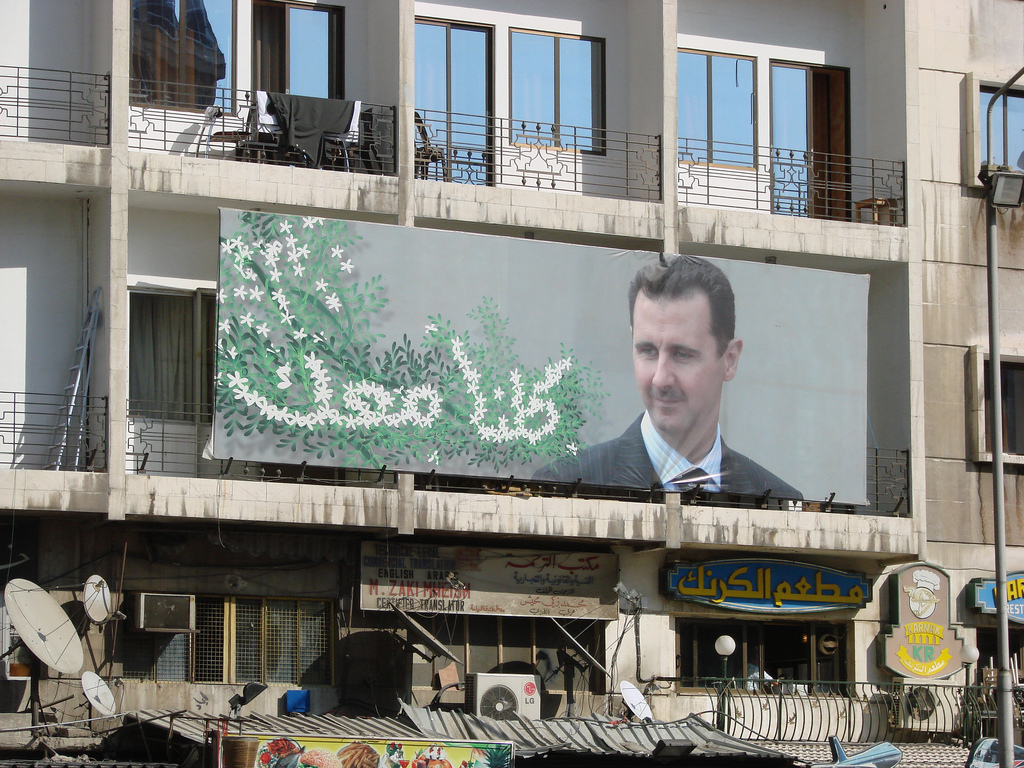WASHINGTON – The Assad regime continued its bombing of a rebel held stronghold in Eastern Ghouta for a fourth day on Wednesday, escalating what was already one of the bloodiest periods in the prolonged Syrian war.
According to the Syrian Observatory for Human Rights, a United Kingdom based pro-rebel organization, at least 275 people have been killed over the four-day air campaign, including 67 children and 42 women.
SOHR said in a statement today that there has been about 2,800 raids and attacks. The attacks have come from a mixture of aerial bombings, missiles, and barrel bombs filled with metal hardware dropped by helicopters, according to the organization.
Along with the estimated 1,725 casualties from the attacks, five hospitals have been destroyed.
The carnage was among the worst recorded in the last three years of the seven-year long war in which President Bashar al-Assad and his Russian and Iranian allies have pummeled rebel and ISIS forces as well as killing and displacing millions of civilians.
The Syrian Arab News Agency, a government controlled news organization, said today that 22 mortar attacks came from rebel forces on Wednesday, injuring nine people.
António Guterres, the United Nations Secretary General, addressed the UN Security Council Wednesday and asked that all “war activities” in Eastern Ghouta be stopped in order for evacuations to take place and for medical treatment to be provided to those who need it.
“I don’t think we can let things go on in this horrendous way,” Guterres said. “A human tragedy is unfolding in front of our eyes [with] 400,000 people living in hell on earth.”
Eastern Ghouta sits just outside of Syria’s capital of Damascus and is one of the final remaining strongholds held by rebel forces in the country.
The region has been a point of conflict between rebel forces and the Syrian government since 2013, but this most recent bombing campaign began Sunday.
The International Committee of the Red Cross called for an end to the attacks in a statement on Wednesday in order for the organization to delivery humanitarian aid to the civilians trapped by the fighting and help those who have been wounded.
“Wounded victims are dying only because they cannot be treated in time,” said Marianne Gasser, ICRC’s head delegate to Syria, in the statement. “The fighting appears likely to cause much more suffering in the days and weeks ahead, and our teams need to be allowed to enter Eastern Ghouta to aid the wounded.”
Around 393,000 people live in Eastern Ghouta and they were already living with severe food shortages even before the escalation of attacks because of the lack of humanitarian aid that has been able to reach the region.
Heather Nauret, a State Department spokesperson, said yesterday that “The escalation is exacerbating the already grave human suffering of nearly 400,000 people.” Nauret also criticized the “seize and starve” tactics used by the Assad regime in the past – specifically during the retaking of the city of Aleppo in 2016.
“The Assad regime’s siege-and-starve tactics…are adding to the humanitarian disaster there,” Nauret said. “The horrors of East Aleppo are being repeated in East Ghouta with the ongoing slaughter of trapped civilians and woefully inadequate access for humanitarian actors.”
The Syrian government keeps tight control over anyone entering the region, including humanitarian groups. The government denies that there has been any blockage of aid. However, according the ICRC, there has been no food or medical aid delivered to Eastern Ghouta by the organization since November.
The latest use of “siege-and-starve” tactics has led some to believe that Assad’s military forces are planning another major offensive in the near future.
Reuters reported Wednesday that a military commander has said that the air campaign was “preliminary bombings” and that a ground campaign in Eastern Ghouta could occur.
The Syrian war began in March of 2011 when anti-Assad demonstrators were shot by security forces while protesting in the streets of Daraa. Over 400,000 people have been killed since the war began and millions are displaced within Syria and around the world.
Assad’s use of chemical weapons, the prevention of the delivery of aid to the Syrian people, and the dramatic civilian body count from the war have all contributed to calls by the international community for him to step down as Syria’s leader.
In 2015, Russia began providing military support to the Assad regime, which helped the retaking of territory in Syria that was under rebel control.
Nauret condemned Russia’s support of Assad and said that the government of Vladimir Putin has helped the Assad regime regain control over a country that has been destroyed by the war.
“Russia must end its support of the Assad regime and its allies,” Nauret said. “[Assad’s regime] were on the brink of collapse, and who came in and who saved them back in 2015? Russia did. Russia bears a unique responsibility for the suffering and the plight of the Syrian people.”
Putin’s spokesman, Dmitry Peskov, denied that Russia had any responsibility for the death of civilians in Eastern Ghouta, according to media reports. However, SOHR insists that Russia planes have been a part of the bombing campaign.

